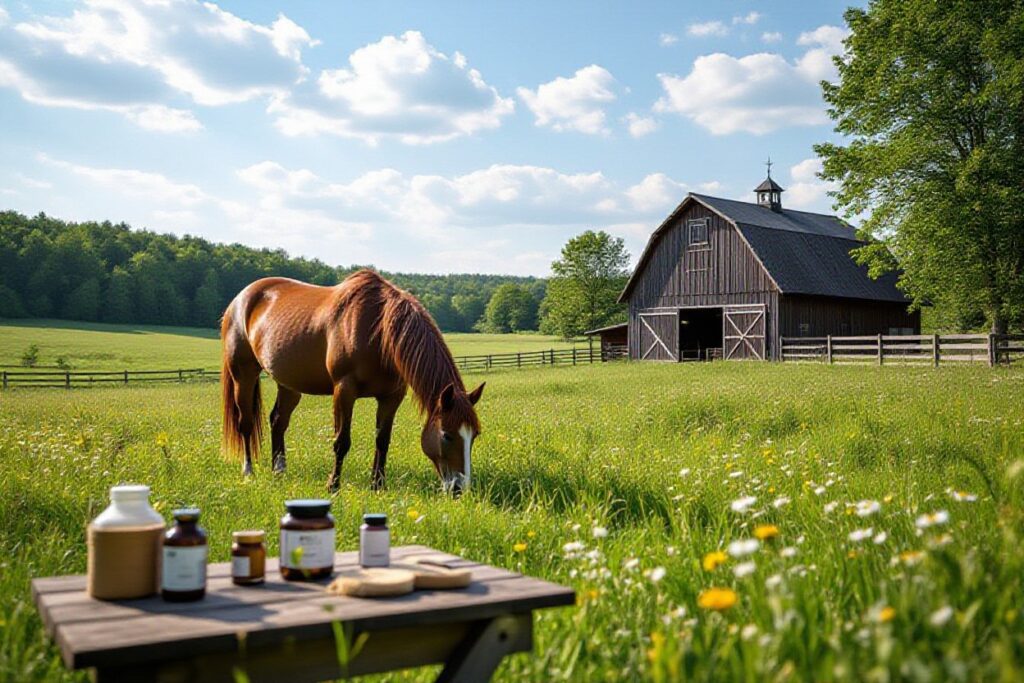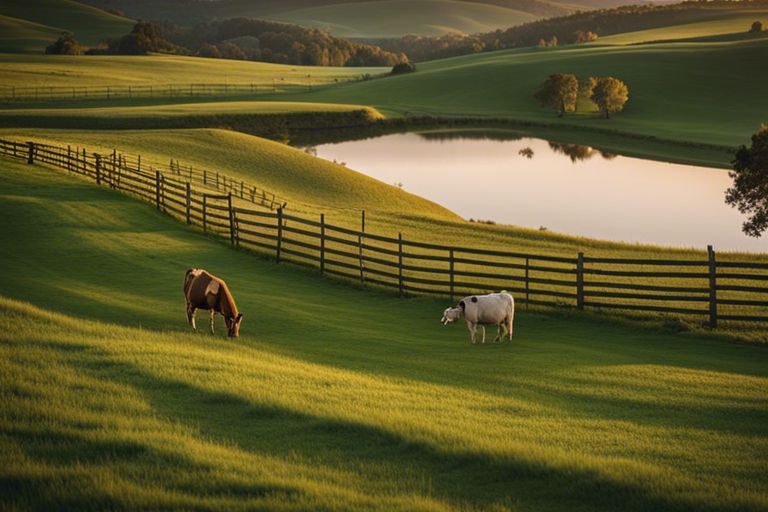Breeding patterns in the equine world are increasingly disrupted by the unpredictable and extreme shifts in climate. As a horse breeder, your crucial role in preserving these magnificent creatures is now facing unprecedented challenges. From heat stress affecting fertility to changing weather patterns impacting pasture availability, the effects of climate change are profoundly altering the landscape of horse breeding. In this article, we probe into the urgent need to address and adapt to these changes for the future sustainability of horse breeding practices.

Historical Background of Horse Breeding
While the history of horse breeding dates back thousands of years, it was during the domestication of horses that breeding practices began to evolve.
Evolution of Horse Breeding
Evolution in horse breeding has been a gradual process, with early humans selectively breeding horses for traits that suited their needs such as strength, speed, and endurance. As civilizations advanced, so did the sophistication of breeding techniques, leading to the development of various horse breeds with specific characteristics.
Traditional Breeding Practices
Horse breeding has long been intertwined with human culture and societal needs. Traditional breeding practices involved pairing specific stallions and mares based on their qualities to produce offspring with desired traits. These practices have been passed down through generations, shaping the diversity of horse breeds we see today.
Background: The traditional breeding practices not only preserved desirable traits but also inadvertently led to a reduction in genetic diversity within certain horse breeds. This lack of diversity can increase the susceptibility of breeds to diseases and environmental stressors, such as the effects of climate change.
Climate Change: A Global Threat
Rising Temperatures and Extreme Weather Events
Any changes in the global climate can have a direct impact on horse breeding practices. Rising temperatures are causing shifts in the availability of forage, water sources, and suitable habitats for horses. Extreme weather events such as heatwaves, droughts, and floods can also pose significant challenges to horse breeders.
| Impact of Rising Temperatures | Impact of Extreme Weather Events |
| Horses may experience heat stress and reduced fertility. | Severe storms can damage infrastructure and threaten the safety of horses. |
| Changes in vegetation patterns can affect forage quality. | Flooding can contaminate pastures and water sources. |
Impact on Ecosystems and Biodiversity
Extreme weather events and changes in climate patterns are not only affecting horse breeding directly but are also impacting ecosystems and biodiversity. These changes can lead to disruptions in food webs, loss of habitats, and alterations in natural breeding cycles of wild horse populations.
A decline in biodiversity can have far-reaching consequences for both domestic and wild horse populations. Ecosystem changes can result in a decrease in available forage, an increase in competition for resources, and a higher prevalence of diseases among horses. It’s crucial to address these challenges to ensure the sustainability of horse breeding practices and the well-being of horses worldwide.
Effects of Climate Change on Horse Breeding
Changes in Grazing Patterns and Feed Quality
After experiencing the effects of climate change, you may notice significant changes in grazing patterns and feed quality for your horses. With shifting weather patterns, you might find it challenging to predict and plan for suitable grazing areas and feeding schedules. The degradation of pasture quality due to extreme weather conditions like droughts or heavy rainfall can impact the nutritional intake of your horses.
Increased Disease Prevalence and Parasite Resistance
On encountering the consequences of climate change, you might observe a rise in disease prevalence and parasite resistance among your horses. Climate change creates favorable conditions for the spread of diseases and the development of resistance in parasites, making it harder to protect your horses from infections. It is crucial to stay vigilant and adapt your health management strategies to combat these growing challenges.
Resistance
Resistance is a grave concern as parasites develop resistance to traditional treatments, making it harder to control infestations. Implementing regular monitoring and strategic deworming programs can help combat the emergence of resistance and safeguard the health of your horses.
Shifts in Reproductive Cycles and Fertility
Cycles
Another consequence of climate change on horse breeding is the potential shifts in reproductive cycles and fertility rates. Fluctuating temperatures and unpredictable weather patterns can disrupt the natural breeding cycles of horses, leading to challenges in breeding management and fertility outcomes. It is imperative to closely monitor and adapt your breeding practices to mitigate the impact of these changes.
Shifts
Shifts in reproductive cycles and fertility can have detrimental effects on your breeding program, affecting the overall success and sustainability of your operation. Consider seeking guidance from equine reproduction specialists to develop tailored strategies that account for the impact of climate change on your breeding goals.

Physiological Responses to Climate Change
Heat Stress and Thermoregulation in Horses
Keep in mind that horses are highly susceptible to heat stress as their natural cooling mechanisms are limited. In warmer temperatures, your horses may struggle to regulate their body temperature efficiently, leading to potential health complications. Adequate shade, proper ventilation, and access to cool water are crucial in preventing heat stress in your horses.
Respiratory and Cardiovascular Impacts
With the increasing frequency of heatwaves and extreme weather events due to climate change, your horses are at a higher risk of experiencing respiratory and cardiovascular issues. These impacts can be exacerbated by poor air quality and high humidity levels. It’s important to monitor your horses closely during hot weather conditions and consult with a veterinarian if you notice any signs of respiratory distress or abnormal heart rate.
Respiratory conditions such as heaves can be aggravated by prolonged exposure to pollutants in the air, which are more prevalent in a changing climate. Additionally, extreme heat can put significant strain on your horse’s cardiovascular system, especially during strenuous activities. By implementing proper management practices and seeking veterinary advice, you can mitigate the respiratory and cardiovascular risks associated with climate change.

Genetic Consequences of Climate Change
Selection Pressures and Adaptation
To address the genetic consequences of climate change on horse breeding, you must consider the selection pressures that come with changing environmental conditions. **Strong**er and more frequent extreme weather events such as prolonged heatwaves or intense storms can **exert pressure** on horse populations, favoring individuals with specific genetic traits that help them survive and reproduce in these conditions. This can lead to a shift in the gene pool of horse populations over time as those better suited to the changing climate pass on their genes to the next generation.
Genetic Drift and Loss of Diversity
To further understand the genetic consequences of climate change on horse breeding, you must also consider genetic drift and the potential loss of genetic diversity. **An** increase in extreme weather events can lead to population declines or fragmentation, reducing the overall genetic variation within horse populations. **It** is crucial to maintain genetic diversity as it provides the raw material for adaptation to changing environmental conditions. Loss of diversity can make horse populations more vulnerable to diseases, decrease their reproductive success, and ultimately threaten their long-term viability.

Breeding Strategies for a Changing Climate
Development of Climate-Resilient Breeds
Unlike traditional breeding practices, where emphasis was primarily on specific traits for performance or appearance, in the face of climate change, it is imperative to focus on developing climate-resilient breeds. Breeding programs now need to prioritize traits such as heat tolerance, disease resistance, and adaptability to changing environmental conditions. By selecting for these characteristics, you can ensure that future generations of horses are better equipped to thrive in a shifting climate.
Assisted Reproductive Technologies and Cryopreservation
For breeds that are particularly at risk due to climate change, such as those from regions experiencing extreme weather events or shifting disease patterns, assisted reproductive technologies and cryopreservation can play a crucial role in preserving genetic diversity and ensuring the survival of threatened populations. These technologies allow for the storage and utilization of genetic material from valuable individuals, safeguarding their unique traits for future breeding purposes.
Changing climate conditions can pose challenges to natural breeding cycles and reproductive success rates. By incorporating assisted reproductive technologies and cryopreservation into breeding strategies, you can mitigate the risks associated with climate-induced disruptions and maintain stable breeding programs even in unpredictable environments.
Cross-Breeding and Hybrid Vigor
Reproductive strategies such as cross-breeding offer a powerful solution to enhance genetic variability and introduce desirable traits that improve resilience to climate change. By crossing different breeds known for their specific strengths, you can create hybrids that benefit from what is known as hybrid vigor. This phenomenon results in offspring with enhanced characteristics such as increased disease resistance, adaptability to varying climates, and overall improved performance.
The incorporation of cross-breeding and hybrid vigor into your breeding program can help future generations of horses better withstand the challenges posed by a changing climate. By diversifying genetic backgrounds and promoting the survival of the fittest, you are actively contributing to the resilience and sustainability of horse populations in the face of environmental uncertainty.
Final Words
Upon reflecting on the impact of climate change on horse breeding, it is crucial to recognize the urgency of addressing this issue. As temperatures rise and extreme weather events become more frequent, the very livelihood of horse breeders and the well-being of horses are at stake. It is important to take action now to mitigate the consequences of climate change and safeguard the future of horse breeding.
Q: How does climate change impact horse breeding?
A: Climate change can affect horse breeding in various ways, including altering the availability and quality of grazing land, increasing the prevalence of diseases, and changing the timing of breeding seasons.
Q: What are the potential effects of climate change on the health of breeding horses?
A: Climate change can lead to an increase in heat stress, dehydration, and respiratory issues among breeding horses, impacting their overall health and reproductive success.
Q: How can horse breeders adapt to the challenges posed by climate change?
A: Horse breeders can implement strategies such as providing ample shade and access to clean water, adjusting breeding schedules to account for changing seasons, and monitoring horses closely for signs of heat-related stress or illness.
Q: Are certain horse breeds more resilient to the effects of climate change?
A: Some horse breeds, such as those originating from hot or cold climates, may be more genetically adapted to cope with specific climate conditions. However, all horses can benefit from proper care and management practices in the face of climate change challenges.
Q: How can horse breeders contribute to mitigating the impacts of climate change?
A: Horse breeders can reduce their carbon footprint by implementing sustainable practices on their farms, such as using renewable energy sources, practicing water conservation, and promoting biodiversity in pastures. They can also educate others in the equine industry about the importance of environmental stewardship.










